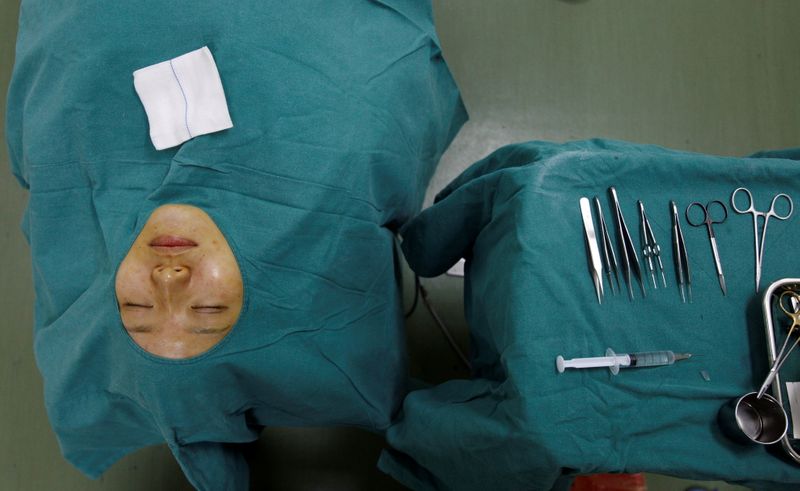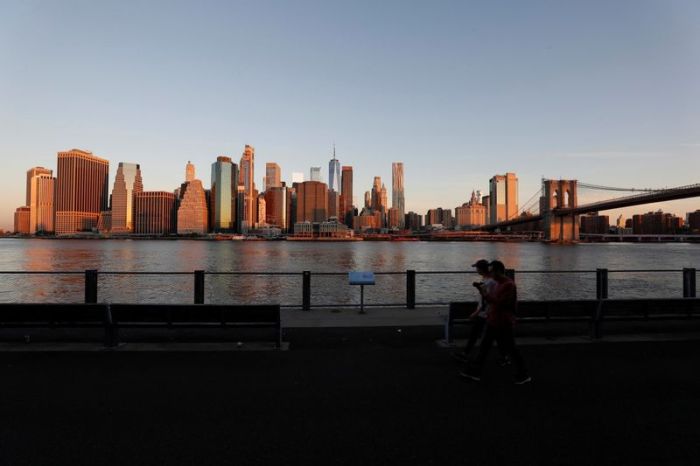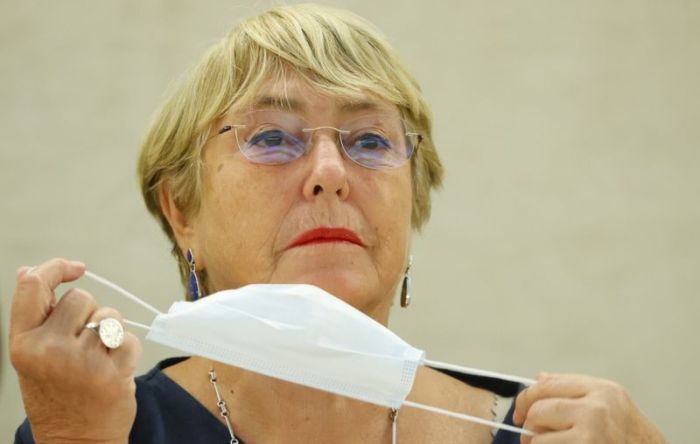BEIJING (Reuters) -China’s People’s Daily newspaper said it was “imperative and urgent” to regulate advertisements bombarding people with recommendations for cosmetic surgery, procedures and treatments, as they had become excessive, and some made false claims.
“From posters at bus stops and in subway, to introductions on social websites and content platforms, from advertisements planted in films and television variety shows, to promotions by live-streamers, medical beauty advertisements are overwhelmingly pervasive,” the ruling Communist Party’s official newspaper said in a commentary published on its website.
The People’s Daily said some advertisements associate good looks with “high-quality”, “diligence” and “success”, fabricating stories about “plastic surgery changing one’s destiny” and distorting aesthetic perceptions.
The criticism of the sector comes as Chinese regulators have wielded a wide-ranging crackdown on industries from technology to education to property to strengthen their control over the economy and society after years of runaway growth.
The spate of regulatory activity has raised investors’ concerns over which sectors might come under scrutiny next.
In August, China’s market regulator drafted guidelines to regulate the medical aesthetics sector’s advertising practices, saying that they were prompting societal anxiety over people’s looks.
Demand for plastic surgery or medical aesthetic treatment has boomed in China in recent years with procedures to make one’s eyes wider or nose higher among the most popular. However, they have been criticised for failing to caution people about risks.
In July, a 33-year-old online influencer died from complications after a botched liposuction procedure in a case that was widely reported by media in China.
The market for plastic surgery in China is expected to grow to 300 billion yuan ($46.54 billion) by 2022, state news agency Xinhua reported last month citing a report by the Chinese Association of Plastics and Aesthetics.
($1 = 6.4467 Chinese yuan)
(Reporting by Sophie Yu and Brenda Goh; Editing by Simon Cameron-Moore)
























